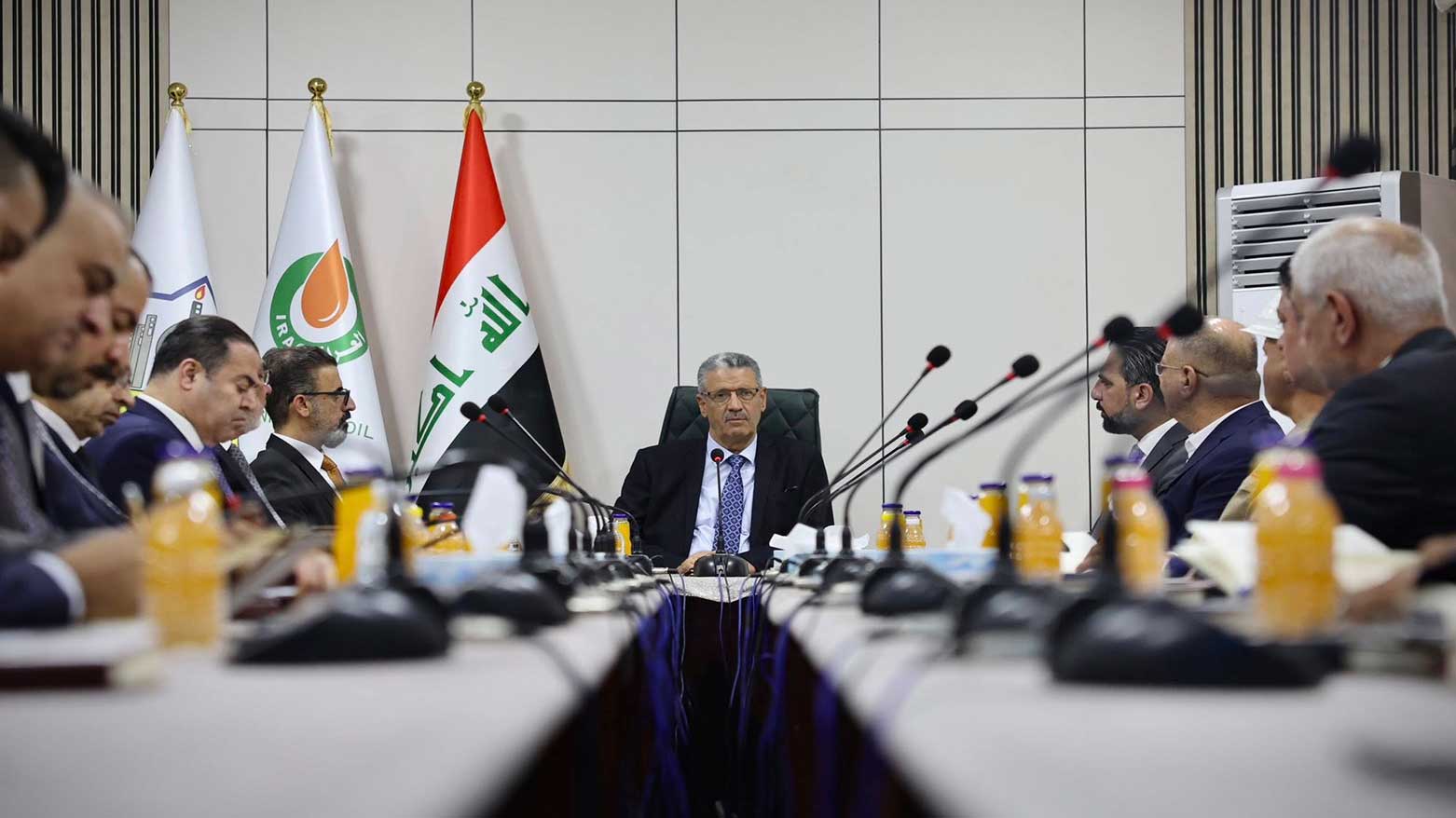Iraq to Resume Oil Exports from Kurdistan Region via SOMO Following New Baghdad-Erbil Agreement
“We will start receiving the Kurdistan Region’s oil either today or tomorrow and export it through SOMO to the Ceyhan port,” Abdulghani told a press conference in Kirkuk. “If we resume receiving and exporting Kurdistan’s oil, other companies will resume operations, and production will increase.”

ERBIL (Kurdistan24) — Iraq's Oil Minister announced on Wednesday that the federal government will begin receiving oil from the Kurdistan Region as early as Wednesday or Thursday, to be exported via Turkey’s Ceyhan port through Iraq’s state oil marketing company, SOMO.
During a visit to Kirkuk province on Wednesday, Iraqi Oil Minister and Deputy Prime Minister Hayyan Abdulghani told reporters that Baghdad had officially been informed by the Kurdistan Regional Government’s (KRG) Ministry of Natural Resources that oil production in the Region had reached 130,000 barrels per day. Of that amount, 50,000 barrels are allocated for domestic use, while the remaining 80,000 barrels will be handed over to SOMO for export, he said.
“We will start receiving the Kurdistan Region’s oil either today or tomorrow and export it through SOMO to the Ceyhan port,” Abdulghani told a press conference in Kirkuk.
The remarks came following a joint visit by Abdulghani and Kirkuk Governor Rebwar Taha to Northern Oil Company facilities within the province. The minister talked about production capacity and operational challenges caused by recent drone attacks targeting oil installations in the Kurdistan Region, which have temporarily reduced output and prompted some companies to suspend operations.
Abdulghani emphasized that restarting oil exports from the Kurdistan Region would help stabilize production, encourage the return of oil companies, and boost overall output levels.
“If we resume receiving and exporting Kurdistan’s oil, other companies will resume operations, and production will increase,” he added.
Baghdad-Erbil Oil Agreement Offers Temporary Relief Amid Tensions
The announcement follows a July 17, 2025, decision by the Iraqi Council of Ministers, which approved a new temporary agreement between Baghdad and Erbil regarding oil exports and salary payments for public employees in the Kurdistan Region. Under the deal, the KRG is to supply 230,000 barrels of oil per day and 120 billion IQD monthly from the non-oil revenues to the federal government.
However, this arrangement was soon disrupted by a wave of drone strikes targeting Kurdish oil infrastructure, forcing a drop in production and delaying implementation. In light of these attacks, the new agreement has been revised: until production returns to pre-strike levels, the KRG will use 50,000 barrels for internal Kurdistan Region needs, and submit all the rest of daily produced oil (approx. 80,000 barrels per day) to SOMO, while Baghdad will cover the salaries for May and the upcoming months for Kurdistan Region Government civil servants.
The deal also signals renewed cooperation between Iraq and Turkey, whose long-standing pipeline agreement with Baghdad is set to expire next year. Abdulghani confirmed that talks are ongoing to draft a new oil export agreement with Ankara before the current one ends in 2026.
Oil exports from the Kurdistan Region were halted in March 2023 following a ruling by the Paris-based International Court of Arbitration, which sided with Baghdad in a dispute over the KRG’s independent oil sales. Since then, Kurdistan’s oil has remained offline, deeply impacting the Region’s economy and exacerbating tensions over unpaid salaries and budget allocations from Baghdad.
Wednesday’s announcement offers cautious optimism for resuming oil exports, but many in the Kurdistan Region view the move as yet another example of Baghdad tightening its grip over the Region’s resources. Rather than signaling true cooperation, the latest arrangement is seen by critics as part of Baghdad’s ongoing strategy to centralize control, undermine the Kurdistan Region’s constitutional rights, and exploit the oil file as a political pressure tool.
While exports may resume, the imbalanced terms and heavy-handed federal oversight raise concerns about the long-term implications for the Region’s autonomy and economic stability.
